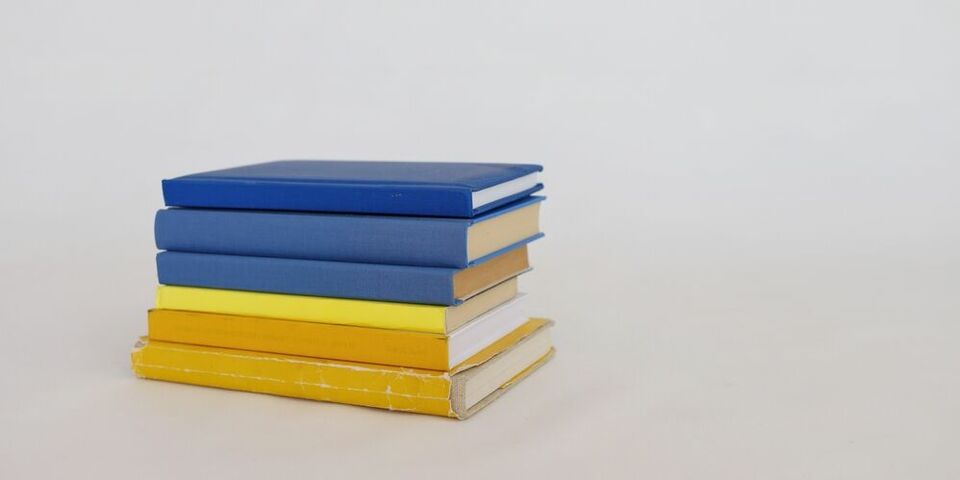Higher education seeking financial support for reception of refugees
Many schools in the Netherlands have already welcomed young Ukrainian refugees to their classes. Higher education would also like to admit newcomers, but this is easier said than done. Many institutions are waiting for decisions from The Hague. So does TU/e, but it does already offer students the chance to participate in one or two courses per quartile free of charge via TU/enable.
Nearly a month ago, the refugee student foundation UAF – with the support of the umbrella organisations in higher education – sent a letter to Minister Dijkgraaf. They were happy with the million euros that the Minister had awarded in support of their current students and researchers from Ukraine, Belarus and Russia. But was it possible that something could be done for those students who were yet to flee Ukraine?
The UAF asked the Minister to set up a national fund that would enable Ukrainian refugee students to continue their studies, regardless of the cost. This fund would explicitly include students from Afghanistan, Yemen and African nations who had been pursuing their studies in Ukraine before the war.
Baffled
A consultation with the Minister has yet to take place, and the institutions are still awaiting the outcome of that meeting. But there are those who are baffled by this situation. Dutch universities are not leading the way when it comes to support for Ukraine, Professor Wim Groot of Maastricht University wrote in his column in the Observant. “Primary and secondary schools are welcoming Ukrainian refugee children into their classes. And what are universities doing? Except for stating their support, very little.”
At the beginning of March many higher education institutions were not sitting around waiting. They were organising all kinds of things for their students from Ukraine, and from Russia and Belarus, like help with psychological problems, assistance renewing their residence permits, or if they were unable to withdraw money because of the war. In answer to Parliamentary questions yesterday, Minister Dijkgraaf referred to this as generous support.
But refugee newcomers can’t just take a seat in our lecture halls. We asked the largest higher education institutions about their plans to tackle this problem.
TU/e
At TU/e, the initiative TU/enable was launched some time ago, which offers students with a refugee background, such as students currently fleeing the war in Ukraine, a chance to participate in one or two courses per quartile free of charge, ESA director Patrick Groothuis says.
“We’ve also set up a new desk (via our regular admission desk) for refugee students who might want to study here coming academic year. We have several registrations already, but TU/e and other universities are currently all waiting for politicians in The Hague to make a decision. Because we want this group to be assigned the EEA status, so that they will be able to study here at an affordable price.”
The EEA status – according to which students pay the statutory tuition fee of just over 2000 euros, instead of the excessively high institutional tuition fees for non-European students – is also important when it comes to whether or not this group of students will be eligible for a grant. “We are studying this possibility, for example in collaboration with UFe. Having an EEA status or not in part determines the financial impact.”
Groothuis stresses that the intake of refugee students from Ukraine requires a “truly customized approach. In many cases, students were forced to interrupt their studies, nor are they likely to have a diploma, and they can’t take a language test in Ukraine either at this point. We address these issues by carefully looking at each individual case, and by being flexible when it comes to applying the rules, insofar as this is legally possible, for example by postponing the language test until these students arrive in the Netherlands.”
Not a consistent picture
What emerges is not a consistent picture. The University of Twente says that it will be creating more permanent places for refugees, but exactly how is not yet clear. Delft University of Technology let us know that the online course offerings are obviously open for refugees to enrol in.
The University of Amsterdam is inquiring whether refugee students need things like a laptop, WIFI or a place to study. The UvA is also thinking about offering a pre-Bachelor’s degree or summer school, preferably in collaboration with VU Amsterdam and the Amsterdam University of Applied Sciences.
Vrije Universiteit Amsterdam has already given a number of students who have fled Ukraine ‘hospitality status’. That means that they can use the library and a computer on campus, among other things. Some of them can also ‘sit in’ on upper level courses in their field of study if they have the background. This will be arranged on an individual basis.
At Utrecht University refugees can take Bachelor’s courses free of charge through the programme InclUUsion. Since 2016 more than a thousand asylum seekers and status holders have done just that, but there are prerequisites when it comes to prior education and English language skills. Radboud University Nijmegen and Wageningen University offer similar programmes. They are still reviewing the possibility of “extra options”.
Tilburg University is doing that too, and wants to see Ukrainian refugees receive temporary EER status – as would Wageningen – which means they would pay the lower statutory tuition fee of two thousand euros instead of the sky-high institutional tuition fees for non-European students.
Long term
A spokesperson for VU Amsterdam expects refugees to be able to enrol as regular Bachelor’s or Master’s students in the next academic year. “The Ministry is still deliberating about the conditions.”
So that means waiting for the consultation with Minister Dijkgraaf. He let the House of Representatives know yesterday that he wants to talk to the institutions about “whether and if so how we can support these students financially in the long term” from a national perspective.


Discussion